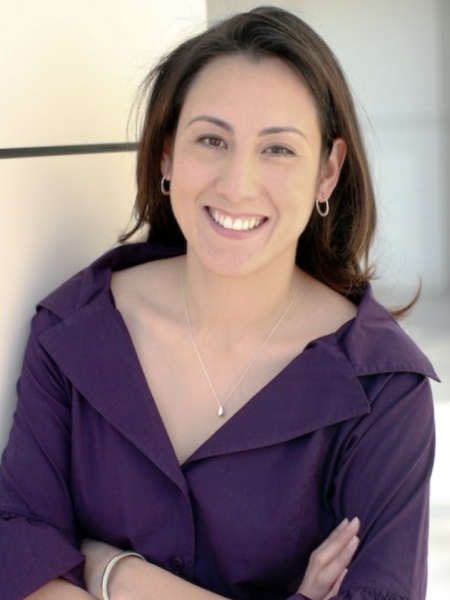
As part of a Q&A series with our faculty, the USC School of Dramatic Arts asked Assistant Professor of Theatre Practice and Interim Artistic Director Rena Heinrich about the SDA Literary Committee’s play selection process, her advocacy work with California State Parks, the rewarding part about teaching and more.
How long have you been teaching at SDA?
Heinrich: This is my fifth year at USC.
What are your roles at SDA and what do you teach?
I am an assistant professor of theatre practice in critical studies as well as the interim artistic director of SDA. I am also affiliate faculty of the East Asian Studies Center in Dornsife. I serve on SDA’s Curriculum and EDI committees and as the chair of the Literary Committee. I teach a variety of classes. I teach our freshman foundational critical studies classes as well as teach Asian/Asian American Theatre, Performing Identities, and Drama as Human Relations.
Tell us a little about your professional career.
After theatre school, I acted professionally in television, film, and theatre for about a decade before I started directing professionally. I tend to go back and forth between acting and directing. I have also trained and worked as a dramaturg; my dramaturgical hat serves me as a director, especially when working on a new play.
What are you currently working on, outside of USC?
I’ve added research scholar to my list as a hyphenate, and I currently have an article and a book manuscript under review for publication. I’m very proud of both projects.
As the SDA Literary Committee plans for next season, what does the committee look for in a play?
Does this play serve our student community? Are there enough meaty roles? What are genres we tend to do a lot? We looked at the last four seasons together and homed in on the kinds of plays we haven’t produced in recent years. For instance, we’ve seen a lot of Chekhov in the previous two seasons. Even though I’d happily produce one of his plays without question, he might not be someone we see next year, but he’ll be back.
What is the most rewarding part of teaching?
There are too many aspects to choose. I’m passionate about teaching. I think one of the most rewarding parts is witnessing a student make a discovery about the material we are exploring in class. It’s wonderful to watch a student fall in love with an artist, a play, or a theory and to listen to them articulate their excitement about the work. I always learn something new from my students even about pieces that I’ve been studying for years. I really encourage students to listen to their impulses and trust their instincts. Students often see something in the work that no one else sees, and that’s exciting.
Could you tell us about the advocacy work you’ve done with the California State Parks?
Two colleagues and I wrote to California State Parks to advocate for the removal of a memorial to Madison Grant and for the “unnaming” of the Madison Grant Forest and Elk Refuge in Humboldt County in northern California. Grant was a leading restrictionist and eugenicist in the early part of the twentieth century. Grant also posed a conundrum to the State of California because he was one of the founders of Save the Redwoods League and was instrumental in the creation of the national park system. However, Grant’s aim was to set aside public land for future generations of the White race, and his 1916 book The Passing of the Great Race was the inspiration of Adolf Hitler’s Mein Kampf. After many emails and meetings, California State Parks agreed to remove Grant’s name from the forest and to rename the land in a way approved by the local Yurok people. The memorial was removed last summer on June 15 as part of California’s Reexamining Our Past initiative. My colleagues and I were in attendance along with all our community partners. It was a momentous day for the State of California.
As SDA is celebrating its 75th anniversary, what is your favorite memory at the School thus far?
Also, too many moments to recount, but I’ll say the non-stop laughter that took place during Fuente Ovejuna rehearsals. It started in auditions with my assistant director and didn’t let up throughout the entire rehearsal process. We also freely spoke Spanish in the rehearsal room and that was incredible for all of us. At one point deep in rehearsal, one student turned to me and called me Profa, which is short for Profesora. That was a favorite moment.
Any fun facts we should know about Rena Heinrich?
I was born and raised in Anchorage, Alaska, with my mother’s Filipino family, but I spent summers on my paternal grandparents’ farm in South Dakota. I grew up going from Tinikling practice and dog sledding in the winter to riding horses and driving cattle in the summer.